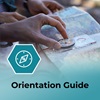Josh, Brian, and I had agreed to meet in a local coffee shop around 10 a.m. Brian and I chatted as we waited for Josh.
"Being a missionary in Alaska was both challenging and rewarding," Brian said as he summed up his three years among the Athabascan Indians. "The winter temperatures and the seasonal changing of daylight were a difficult adjustment. But I gradually got accustomed to both. The welcome and hospitality of the Indians were humbling. The members of this tribe are truly wonderful people; in so many ways, just like us, and in so many ways, very different from us."
"So what are your ministerial plans for the future?" I asked.
"Well, after a sabbatical, I plan to go down to the missions in Brazil for five years. And after that, maybe I will dedicate five years to the missions in Russia," he replied.
I was so impressed with Brian's missionary spirit. I couldn't help but notice how he had the next decade of his life planned out. And I was amazed at how this Franciscan friar was truly becoming a missionary to the world. He's really a holy man, I thought.
We continued talking for 45 minutes. Just as I was wondering whether to be irked or concerned about Josh's tardiness, Josh walked through the door of the coffee shop.
"I'm so sorry for being late!" he announced. "I would have made it on time but as I was driving over here, I noticed an elderly woman pulled over on the side of the road. She had a flat tire and clearly didn't know what to do. So I stopped and changed her tire."
Brian leaned over the table and said to Josh, "Your compassion and charity always challenge me."
I found it ironic that this missionary to the world, whom I considered to be a saint, was complimenting someone who had simply responded to an ordinary need. And then it hit me like a ton of bricks: maybe Josh's way was a better example of holiness.
Defining Holiness
What does it really mean to be a holy person? Do people like Brian exemplify it—those who have long-term plans that include missionary activity on different continents? Is it displayed in the person who says a lot of prayers and performs acts of penance? Or does it mean being a contemporary Elizabeth Fry, the 19th-century woman who founded schools, helped the Gypsies, took care of the homeless, and earned the name "the angel of the prisoners" because of her ministry to those in jail? Is it demonstrated by someone like Dietrich Bonhoeffer, who successfully emigrated to New York but whose commitment to Christ challenged him to return to his native Germany and plot the downfall of the Nazi regime? Or does it mean renouncing power and possessions and living a life of heroic charity and compassion in the tradition of Mother Teresa of Calcutta?
The Concise Oxford American Dictionary gives the secondary and tertiary meaning of holy as "devoted to the service of God: saints and holy men" and "morally and spiritually excellent." However, in this day and age when we are so aware of the way different cultures, education, and upbringing shape each human being uniquely, one person's act of godly devotion can be interpreted by another as an act of terrorism.
Looking to Jesus
I thumb through the Gospels for an answer, since Christian holiness clearly has something to do with the imitation of Christ. But I find myself in a quandary because I'm not sure exactly what I'm supposed to imitate and how far I should go. Am I supposed to go barefoot, become an itinerant preacher, and gather disciples around myself? That seems naive and foolish—and maybe a bit egotistical.
Certainly Jesus' command to love God and neighbor can't be overlooked. But how do I obey that command in a practical way on a daily basis? Am I supposed to have the same emotional feelings for a God I can't see that I have for my closest friends? Even on my best days, that doesn't seem possible. How do I love the next-door neighbor whose name and personal history I don't even know?
The Sermon on the Mount (Matthew 5-7), daunting as it is, offers a lot of food for thought and action. I like to think of it as a compact handbook for holiness. It starts with the Beatitudes which clearly attack the agenda of the ego, focused as it is on self-concern, self-image, self-gratification, and self-preservation. Much to the chagrin of the ego, Jesus calls "blessed" those who are not enslaved by the fantasies of consumerism but are poor in spirit and are willing to experience the painful emotions of grief and mourning. Jesus affirms those who renounce the lust for power and are meek. He encourages those who are willing to take a stand for justice and peace, who choose mercy over revenge, and who are uncompromising in their lives as Christian disciples. Reflecting upon the Beatitudes certainly makes me realize that holiness has something to do with moving beyond the ego with its narcissistic concerns and hedonistic interests—a real death to self.
The rest of the Sermon on the Mount offers some practical examples of Christian holiness. It reminds me that I can't live a duplicitous life. I have to make a choice between the false attractions of the world—treasures on earth—and the eternal values of the gospel lifestyle—treasures in heaven (Matthew 6:19-21). Choosing heavenly treasures means putting all my concerns in the hands of God and trusting that God will care for my basic needs; a life of worry and anxiety betrays an obsession with trinkets and worldly pipe-dreams. The Sermon on the Mount challenges me to be nonjudgmental and to treat others as I myself would want to be treated. It also challenges me with the reminder that, when all is said and done, authentic disciples vote with their feet and not mere words.
Examining the Fruit of Our Lives
Continuing through the New Testament, I come upon Paul's distinction between life according to the flesh and life according to the Spirit (Galatians 5:16-26). Clearly his understanding of life according to the flesh is a life consumed with, controlled by, and centered upon the agenda of the ego. Giving full rein to the ego leads to a life of cheap, recreational sex; of outrageous demands and slavery to addictions; of putting exaggerated emotional investment in possessions; and of looking at other people through the eyes of a cutthroat competitor that depersonalizes them into potential threats or rivals. On the other hand, once a person moves beyond the puny yet well-fortified boundaries of the ego, their life blossoms with love, joy, peace, patience, kindness, generosity, faithfulness, gentleness, and self-control. Life according to the Spirit is clearly a life of holiness.
And so, though it may be challenging to define Christian holiness, we certainly know its fruit when we see it. We do, in fact, see the fruit reflected in the saintly lives of people, both past and present. The lives of Josh, Brian, Elizabeth Fry, Dietrich Bonhoeffer, and Mother Teresa of Calcutta, for example, give witness to the enduring values of the Sermon on the Mount. They give evidence of the virtues which are characteristic of the Spirit of God; they strike us as "devoted to the service of God" and as being "morally and spiritually excellent." And what is the common thread of grace that is woven through these different lives from different historical periods and different Christian denominations? A selflessness that forms the heart of holiness.
—Adapted from This Sacred Moment, by Albert Haase, chapter 1, copyright 2010. Used by permission of InterVarsity Press.









